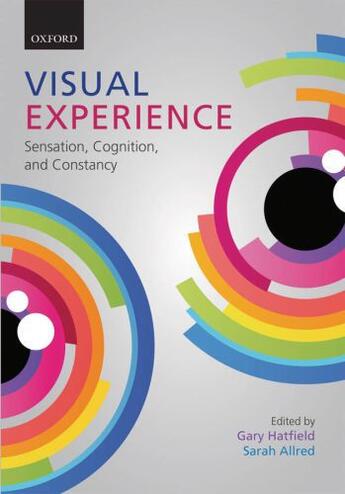Des idées de lecture pour ce début d'année !
Passionné(e) de lecture ? Inscrivez-vous
gratuitement ou connectez-vous pour rejoindre la
communauté et bénéficier de toutes les fonctionnalités du site !

Seeing' happens effortlessly and yet is endlessly complex. One of the most fascinating aspects of visual perception is its stability and constancy. As we shift our gaze or move about the world, the light projected onto the retinas is constantly changing. Yet the surrounding objects appear stable in their properties.
Psychologists have long been interested in constancies, exploring questions such as: How good is constancy? Is constancy a fact about how things look, or is it a product of our beliefs and judgments about how things look? How can the contents of visual experience be studied experimentally? However, philosophers have long been interested in characterizing visual experience and have become widely interested in the constancies more recently. As psychologists and philosophers have interacted, new questions have arisen: should we regard any departure from constancy as a failure of the visual system, or might it be a reasonable or adaptive response? In what circumstances is 'seeing' highly conditioned by cognitive factors such as background assumptions, and in what circumstances not?
Visual Experience explores size constancy and color constancy. It considers methodologies for studying conscious visual perception, efforts to describe visual experience in relation to constancy, what it means that constancy is not always perfect, and the conceptual resources needed for explaining visual experience. This interdisciplinary book is invaluable for both vision scientists and philosophers of mind.
Il n'y a pas encore de discussion sur ce livre
Soyez le premier à en lancer une !

Des idées de lecture pour ce début d'année !

Si certaines sont impressionnantes et effrayantes, d'autres sont drôles et rassurantes !

A gagner : la BD jeunesse adaptée du classique de Mary Shelley !

Caraïbes, 1492. "Ce sont ceux qui ont posé le pied sur ces terres qui ont amené la barbarie, la torture, la cruauté, la destruction des lieux, la mort..."